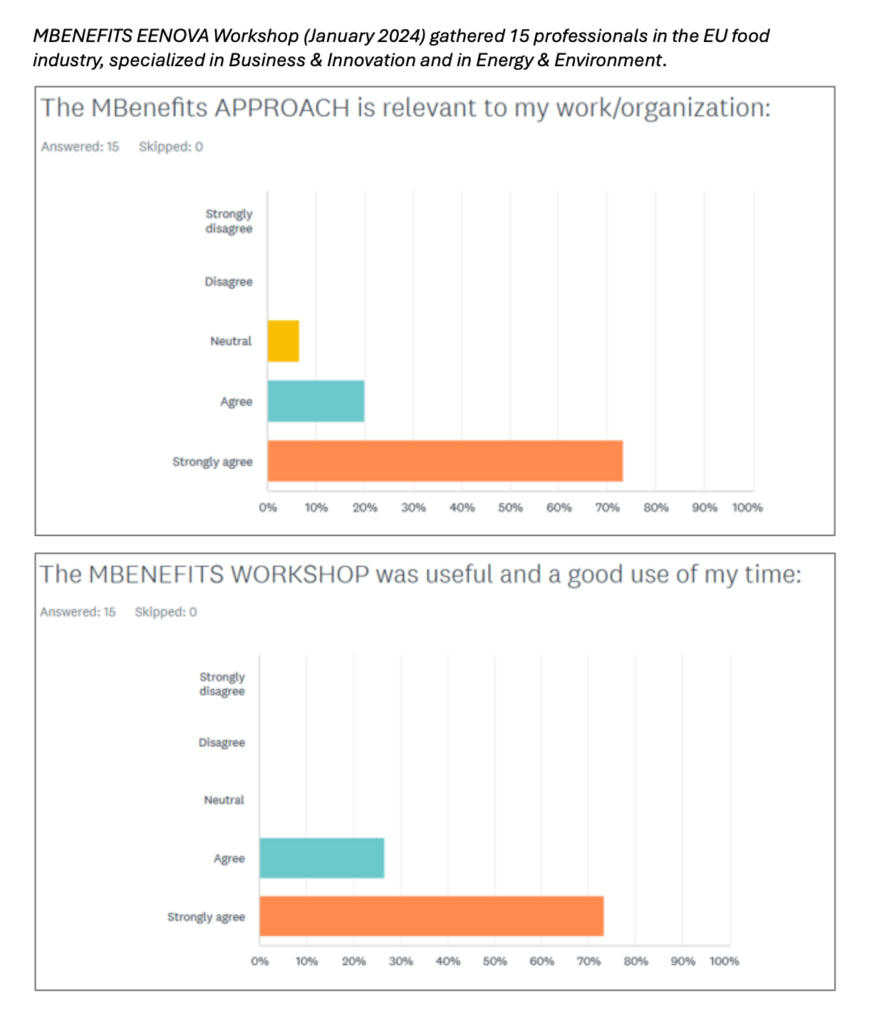Non-energy benefits (NEB) of energy audits and energy efficiency measures have been studied for 30 years. However, they are rarely included in financial appraisals due to a general lack of a methodology and skills to systematically identify and analyse them. In January 2024, EENOVA consortium partners benefitted from a tailor-made training organised by MBENEFITS and run by expert Catherine Cooremans, in order to learn what non-energy benefits are and identify concrete ways to evaluate them through complementary and integrated operational, strategic and financial analyses.
NON-ENERGY BENEFITS
Energy efficiency measures have many benefits beyond reducing energy costs and CO2 emissions: when implemented, technical systems and equipment perform better and break down less often. Machinery and equipment run more smoothly or quietly (motors); they meet temperature, air purity or humidity requirements more reliably for safer processes and higher quality products; they add less heat to the environment or provide better air or light quality for operator or occupant comfort.
As a result, many of the problems associated with suboptimal operation are eliminated. This often means a reduced risk of accidents or illness, better and more reliable product quality, less unplanned downtime and production interruptions with the associated loss of resources.
Overall, the non-energy benefits take the form of productivity improvements, better and more reliable products or services, more comfortable and safer working conditions, and a reduction in many risks, including business continuity risks, for the investing company.
When these positive impacts are included in the evaluations, energy efficiency investments reveal their true strategic and financial value.
THE MBENEFITS METHODOLOGY
The MBENEFITS methodology enables to identify and evaluate all non-energy impacts of energy efficiency, renewable energy and decarbonisation investments in a given value chain, competitive advantage and resources thanks to our simple 4-step analysis methodology embedded in easy-to-use software. Analysis results are standardised to better compare projects, or different scopes and timelines for the same project.
In January 2024, EENOVA consortium partners participated in a tailor-made training organised by MBENEFITS and run by expert Catherine Cooremans, in order to learn what non-energy benefits are and identify concrete ways to evaluate them through complementary and integrated operational, strategic and financial analyses.
TRAINING EENOVA PARTNERS
EENOVA partners benefitted enormously from this training, as they can apply the learnings in this very phase of the project, when organising the roundtable sessions with their respective value-chain companies and set up a dialogue to undergo energy efficiency and other smart improvements. In particular, they gained more informed view of the criteria that companies use to make investment decisions, as well as insights on how to communicate to companies about these non-energy benefits, highlighting and documenting their positive and far-reaching impacts.

A new website has just launched: www.mbenefits.ch. For more information: catherine.cooremans@ipso-facto.ch
Source of information: www.mbenefits.ch








